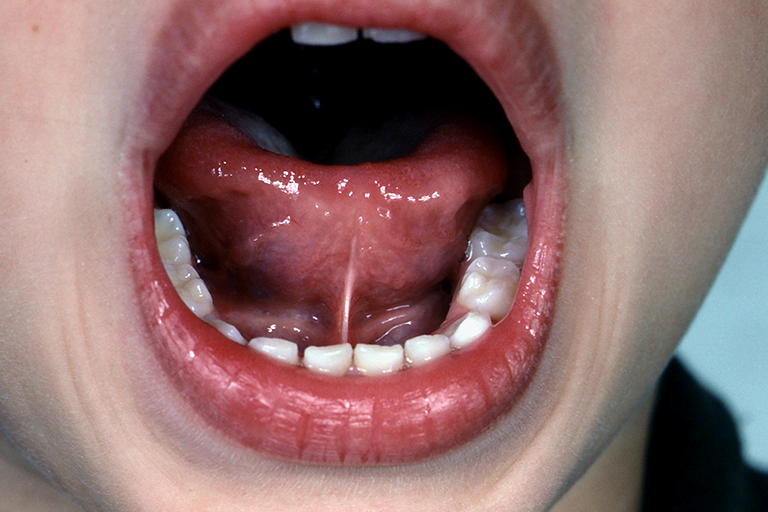
- Home
- About
- Our Team
- Services
- Postoperative Care
- Smile Gallery
- Medical Tourism
- Blog
- Offers
- Contact Us
- Home
- About
- Our Team
- Services
- Postoperative Care
- Smile Gallery
- Medical Tourism
- Blog
- Offers
- Contact Us

Ankyloglossia also referred to as tongue-tie, is a disorder present at birth. It limits the range of motion of the tongue. When a child is affected by tongue tie, the tip of the tongue is bound to the floor of the mouth by a short, thick, or tight band of tissue known as the lingual frenulum, which may hinder breastfeeding. A person with a tongue tie could find it challenging to thrust out their tongue. In addition, tongue-tie may impact a child’s ability to communicate, swallow and eat. Most of the time, tongue tie may not be a problem and might only need a quick surgical correction.
Here are some of the symptoms of tongue tie:
● Difficulty moving the tongue from side to side or elevating it to the upper teeth
● Having difficulty extending the tongue past the lower front teeth
A tongue that protrudes with a heart-shaped or notched appearance
The lingual frenulum typically separates before birth, giving the tongue unrestricted motility. The lingual frenulum stays affixed to the base of the tongue in tongue-tie. Although some occurrences of tongue tie have been linked to specific hereditary variables, the exact cause of this condition is still mostly unknown.
Although tongue-tie can afflict anyone, males are more likely than females to experience it. Sometimes tongue-tie runs in families.
You should consult a doctor in case:
● Your infant exhibits tongue-tie symptoms that are problematic, such as difficulty in breastfeeding
● Your child’s tongue tie may be affecting their speech, as per examination from a speech-language pathologist
● Your older child complains of tongue issues that make it difficult for them to eat, speak, or reach their rear teeth.
● You’re troubled by your own tongue-tie problems.
